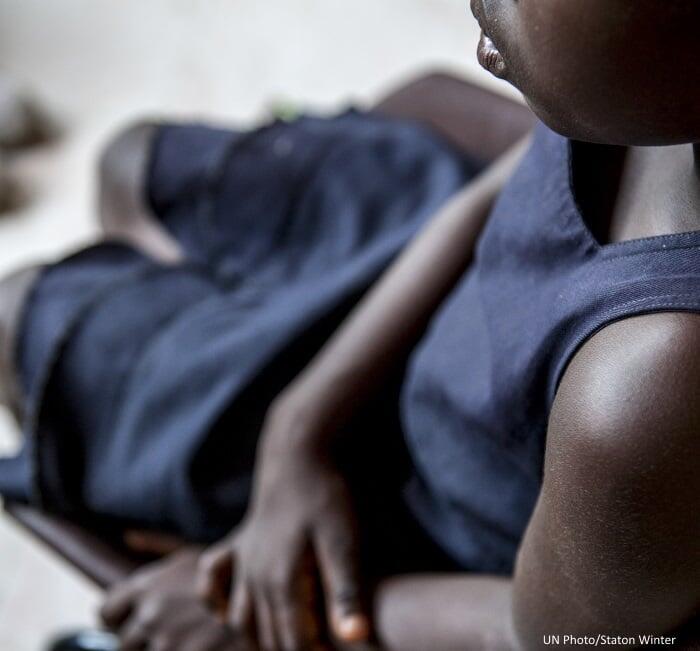KIGINA, Burundi – When the political upheaval began, it was close to the end of her seventh year of school at the College of Kigina. KY, 15, an only child who lived alone with her mother, had worked hard during the first two quarters and was hoping to advance to the next grade.
That was until the streets of her neighbourhood became barricaded by the protestors. Desperate to get to school, she began rising very early in the morning to attempt to beat the demonstrators onto the streets – but even this did not help. She was trapped at home.
One particular Thursday will remain forever etched in KY’s memory. She was alone at home as her mother had gone to inquire about her nephew who had been wounded in the protests.
At around 1.00 pm, while cleaning the small yard at the entrance to their plot, she suddenly heard gunfire, whistles and the sound of people running in all directions. Then the noise subsided and before she had time to get inside the house, she found herself face to face with a man in police uniform who carried a gun.
“He ordered me to let him in”
He claimed that protesters had taken refuge in her house and ordered her to let him search inside. Although she told him the house was empty, he refused to accept this and forced her to open up.
Once inside, he threatened her with his gun and raped her. She cried and begged him to stop but her pleas fell on deaf ears. Then he left. Distraught and trembling, KY did not know where to turn for help. She believed that now, she could no longer attend school as her classmates would find out about her rape and consider her ‘unclean’.
KY had heard about rape but never thought it could happen to her. She was a disciplined teenager, dedicated to academic achievement and the honour of her family’s name.
When her mother found her on her return home, she was lying near the spot where she had been raped, with dried blood on her skirt. Tearfully she related what had happened to her.
Help for rape survivors
Late that afternoon, her mother took her to the Seruka Centre, which supports rape survivors. Here, she received appropriate treatment and she and her mother were accommodated for the night. She was not yet ready to return to her home or even the district where the violation had taken place.
The staff at Seruka Centre provide support to cases of sexual violence 24 hours a day. Since the beginning of the political turmoil in Burundi, the centre has recorded six cases of rape linked to these events, among them KY’s case. The remainder comprise girls aged between 10 and 19 years who were raped either by demonstrators, men in police uniform, men in their neighborhood or family members.
UNFPA provides support to health centres and centres for the support of adolescent survivors of gender-based violence, including the Seruka Centre, and to organizations such as the Red Cross. This support includes the provision of dignity kits and reproductive health kits, as well as awareness raising and provision of information to prevent unwanted pregnancies and sexually transmitted infections and HIV.
As rape survivors like KY will testify, timely and professional intervention after their violation is critical. In her case, the support she received at Seruka Centre has gone a long way towards helping her cope with the aftermath of her assault.
By Nadège Ininahazwe, UNFPA Burundi



